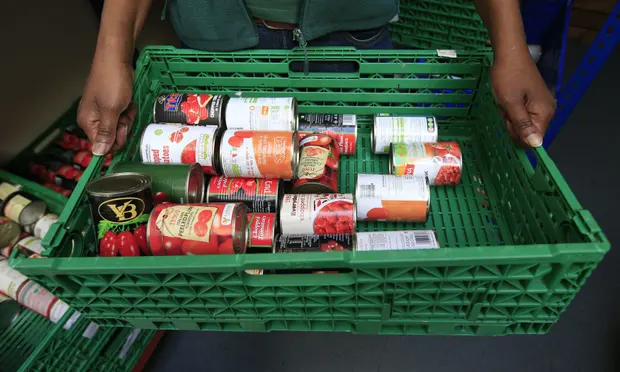The UK’s biggest food bank network is preparing to spend millions of pounds topping up charity food parcels this winter as it offers help to record numbers of families at risk of going hungry as a result of the cost of living crisis.
The Trussell Trust said the expenditure was needed to ensure food banks had adequate food reserves because its customary main source of food supplies – donations from the public – was failing to keep pace with rapidly increasing demand.
The trust said it expected 1.3m emergency food parcels would be distributed by its members over the next six months to help soaring numbers of households in need – including 500,000 to families with children.
Unexpectedly high demand for food parcels in August and September when demand is normally slower meant its food banks have been unable to stockpile sufficient food, leaving many with relatively depleted stores as they prepare for their busiest time of year.
Food banks traditionally relied on food donations from the public, businesses, schools and faith groups, tending to only use cash reserves to meet occasional shortages in specific food stuffs. With need currently far outstripping food donations, however, almost a sixth of Trussell Trust food banks’ food supplies are typically now bought in.
The Trussell Trust chief executive, Emma Revie, warned the government “food banks could not be the only response” to the cost of living crisis, and called on ministers to offer a fresh round of targeted financial support to low income households over the winter to head off growing hardship.
Although the government introduced a package of cost of living payments in July for people on low incomes, Trussell Trust research in August found two-thirds of recipients had already spent the first tranche of support they received. “It went to the right people but it wasn’t enough,” said Revie.
The Trussell Trust on Thursday launches an emergency fundraising appeal to enable its UK-wide network of local food banks to top up food supplies, offer financial advice services to food bank users and give out non-food aid such as blankets and hot-water bottles.


